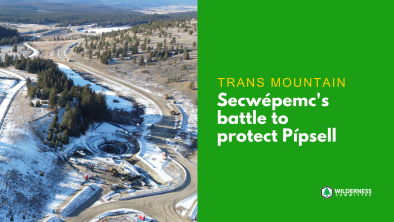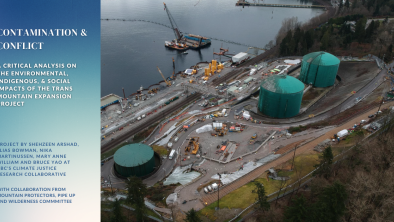Critical legal decision on Trans Mountain expansion due Thursday
Vancouver Sun

Trans Mountain pipeline expansion faces a key federal court decision on Thursday
A long-awaited court decision coming Thursday will dictate the future of the controversial $9.3- billion Trans Mountain oil pipeline expansion.
The outcome will provide either relatively smooth sailing, at least legally speaking; or more bumpy waters; or, potentially, the project’s death knell.
It’s the biggest legal decision yet of challenges by First Nations and other critics of the approval by Justin Trudeau’s federal Liberal government and the National Energy Board.
The mega-project — supported by business groups in B.C., as well as some unions and First Nations — will triple capacity and is meant to open new markets for crude from the Alberta oilsands in energy-hungry Asia.
The Federal Court of Appeal decision has ramifications for further delays of the expansion, which the company has said has already been delayed by protest and permit challenges.
The court will decide whether several First Nations, including the Tsleil-Waututh and Squamish, were adequately consulted, as well as whether orcas have been properly protected.
Other challenges in B.C. Supreme Court have already been rejected, including by the Squamish Nation and the City of Burnaby.
“It’s an important decision. It’s very emotional,” said Will George, a Tsleil-Waututh First Nation member who has been involved in an Indigenous watch house on the pipeline right of way on Burnaby Mountain. “For those who don’t want to see the project go ahead, they’ll be watching this very closely.”
George Hoberg, a professor at the University of B.C.’s School of Public Policy and Global Affairs, said Thursday’s decision is crucial.
“The City of Burnaby decision … that was small fry compared to this.”
Hoberg anticipates three possible outcomes: the project gets the general blessing of the court, validating the review and consultation process; the review process is criticized but not invalidated; or approval is quashed.
In 2016, in a similar challenge of Enbridge’s $7.9-billion Northern Gateway oil pipeline, the federal court found inadequate First Nation consultation, which all but ended that project.
The Trudeau government, which came to power in 2015, defeating the Harper Conservatives, cancelled the Gateway project while approving two other oil pipeline projects, including Trans Mountain.
University of Saskatchewan law professor Dwight Newman said if the federal government correctly assessed changes needed for adequate consultation stemming from the Northern Gateway decision, they should be successful in this case.
However, if they are not successful, their support of the Trans Mountain project means the most likely remedy would be to go back and do more consultation, said Newman, who holds a Canada Research Chair in Indigenous rights at the University of Saskatchewan.
“How it all plays out politically gets very complicated in light of the situation in British Columbia — including the protesters,” added Newman.
During the 10-month period the federal court was deliberating, Houston, Texas-based Kinder Morgan balked at continuing to build the project in the face of opposition in British Columbia, particularly from the NDP government that came to power in 2017.
As a result, the Trudeau government made a deal to buy the expansion project and the existing Trans Mountain pipeline for $4.5 billion, which is expected to close this fall.
Eugene Kung, a lawyer for West Coast Environmental Law, said anticipation is high of the most significant legal decision to date.
He said the ramifications of the decision are complicated, especially when put up against construction timelines and impacts on costs, as well as the Alberta and federal election in 2019.
Kung expects that regardless of the outcome, challenges will be launched at the Supreme Court of Canada, a view also held by Newman and Hoberg.
Regardless of the outcome, the protest of the project, which has included arrest and warnings of more civil disobedience if construction continues, is likely to continue.
The concern extends not only to oil spills that could harm orcas and salmon, but climate change from increased carbon emissions from Alberta oilsands development, said Wilderness Committee national campaign director Joe Foy.
“There is a lot of angst. … Canada is a rich country. If we are not leading the fight against climate change, what are we doing?”
To see original article click here.


